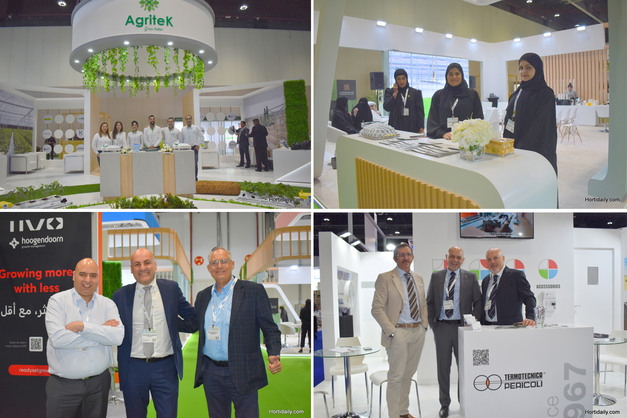This week, the first edition of the Horti Agri Next MEA took place in Abu Dhabi, U.A.E. The event, coinciding with VIV MEA, aims to distinguish itself by spotlighting innovations, technologies, and agricultural trends, with a specific focus on tackling challenges unique to the Middle East and Africa region.

One of the key challenges highlighted during the event was the harsh climate, characterized by extreme heat, which presents a significant barrier to agricultural activities. Moreover, the labor-intensive nature of conventional farming methods has spurred efforts to modernize approximately 30,000 plastic greenhouses in the area. Despite ample water and land resources, the transition to more sustainable and efficient practices faces obstacles due to a lack of subsidies, relying solely on motivation and belief.
Interestingly, the hospitality and aviation sectors in Abu Dhabi have rapidly embraced innovation. This has led experts to anticipate that horticulture is on the verge of becoming the next frontier for technological advancements and sustainable practices in the region.
The enthusiasm of suppliers to engage in this burgeoning market of potential growth reflects a widespread desire to be involved in this promising industry. Yet, the need for meaningful collaborations is apparent, given the evident lack of knowledge and guidance within the local agricultural community. Mere infrastructure construction is not enough; knowledge transfer and partnerships are essential for the successful advancement of the sector. Despite the availability of inexpensive energy, ranging from 7 to 11 cents, there are lingering questions about the additional light requirements in these regions.
